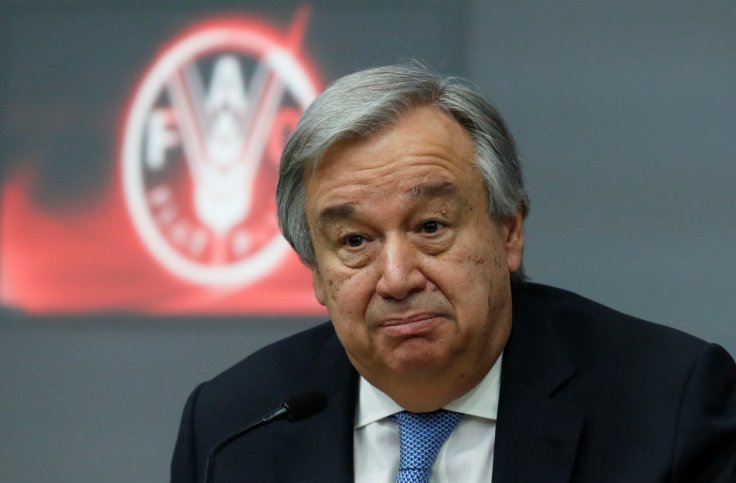
UN Secretary-General Antonio Guterres has asked troop-contributing countries not to place restrictions on how their peacekeepers are deployed so that the operations can deal with emerging threats to peacekeeping.
The request made at the UN Security Council on Wednesday would pose a challenge to countries like India whose peacekeepers could be subject to hazardous conditions as mission mandates are changed midcourse and often without providing them with the necessary resources if the limitations are lifted.
"The caveats imposed by troop-contributing or police-contributing countries should not hinder our operations," Guterres said, even as he outlined the changing environment in which the peacekeepers operate to the ministerial-level Council meeting on peacekeeping attended by 10 ministers and presided over by Dutch Prime Minister Mark Rutte.
"UN peacekeeping missions now operate in far more dangerous, complex and high-risk environments.
"They are under threat from armed groups, criminals and terrorists, who have access to powerful modern weapons.
"Last year, we lost 59 peacekeepers through malicious acts - a sharp increase since 2016, when the figure was 34.
"Too often in the past, our troops have been reduced to waiting in a defensive posture, giving hostile forces time and space to plan attacks," Guterres added.
To counter it, the UN would have to ensure "to have well-trained, well-equipped peacekeepers that are mobile and agile, and can be proactive in dealing with challenges and threats," he said.
The caveats or the limitations placed by countries on how their peacekeepers are used by the UN centre around the "defensive posture" that Guterres mentioned.
Going beyond that to taking more aggressive or proactive action would mean putting the peacekeepers in an active conflict mode, essentially sucking them into a local warlike situation, which many troop-contributing countries are not willing to join in as the original concepts of peacekeeping are radically altered.
Guterres said there was a need for "quantum leap" in refocusing peacekeeping operations and, therefore, he was launching a new initiative, "Action for Peacekeeping".
"As peacekeeping marks its 70th anniversary, I hope we can develop a set of mutually-agreed principles and commitments to create peacekeeping operations fit for the future," he said.
The initiative will be taken up on the sidelines of the next General Assembly session in September, he said and hoped that an agreement on it will be reached by the end of the year.
Meanwhile, he said the Council should "sharpen and streamline mandates" and criticised it for putting "unrealistic expectations" because of which "lives and credibility are being lost".
As an example, he cited the South Sudan operations where 2,402 Indian peacekeepers are deployed.
"Please put an end to mandates that look like Christmas trees," he told the Council.
"Christmas is over, and the UN Mission in South Sudan (UNMISS) cannot possibly implement 209 mandated tasks. By attempting too much, we dilute our efforts and weaken our impact."
(IANS)









